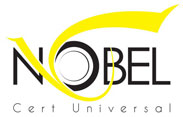ISO 10668:2010 specifies requirements for procedures and methods of monetary brand value measurement. ISO 10668:2010 specifies a framework for brand valuation, including objectives, bases of valuation, approaches to valuation, methods of valuation and sourcing of quality data and assumptions. It also specifies methods for reporting the results of such valuation. The valuation method BV4 applies […]

The Australian Market & Social Research Standard (ISO 20252) sets out requirements for a quality management system and requires senior management to be responsible for quality of client service and continual improvement. The standard covers the management and delivery of research from the executive elements such as research proposals, designing questionnaires and discussion guides, sampling […]
In the realization of a quality management system, some organizations choose to rely on their own personnel but some use the services of external consultants. The selection of a consultant by an organization is important for ensuring that the resulting quality management system is capable of meeting the organization’s planned objectives in the most efficient […]
ISO/IEC 17799:2005 establishes guidelines and general principles for initiating, implementing, maintaining, and improving information security management in an organization. The objectives outlined provide general guidance on the commonly accepted goals of information security management. ISO/IEC 17799:2005 contains best practices of control objectives and controls in the following areas of information security management: security policy; organization […]
The overall performance of a quality management system and its processes ultimately depends on the involvement of competent people and whether they are properly introduced and integrated into the organization. The involvement of people is important in order for an organization’s quality management system to achieve outcomes which are consistent and aligned with their strategies […]
ISO 22315:2014 provides guidelines for mass evacuation (An evacuation in response to a risk or threat is the movement of people from a designated area.) planning in terms of establishing, implementing, monitoring, evaluating, reviewing, and improving preparedness. It establishes a framework for each activity (the need for evacuation can arise from naturally occurring events, human […]
The ISO 9000:2015 and ISO 9001:2015 standards are based on seven quality management principles that senior management can apply for organizational improvement: Customer focus Understand the needs of existing and future customers Align organizational objectives with customer needs and expectations Meet customer requirements Measure customer satisfaction Manage customer relationships Aim to exceed customer expectations […]
ISO 9001 is the international standard that specifies requirements for a quality management system (QMS). Organizations use the standard to demonstrate the ability to consistently provide products and services that meet customer and regulatory requirements. It is the most popular standard in the ISO 9000 series and the only standard in the series to which organizations […]
ISO 9000 was first published in 1987 by ISO (International Organization for Standardization). ISO 9000 is a set of international standards on quality management and quality assurance developed to help companies effectively document the quality system elements to be implemented to maintain an efficient quality system. ISO 9000 deals with the fundamentals of quality management […]
This International Standard provides guidance on quality management in projects. It outlines quality management principles and practices, the implementation of which are important to, and have an impact on, the achievement of quality objectives in projects. It supplements the guidance given in ISO 9004. These guidelines are intended for a wide audience. They are applicable to projects […]







